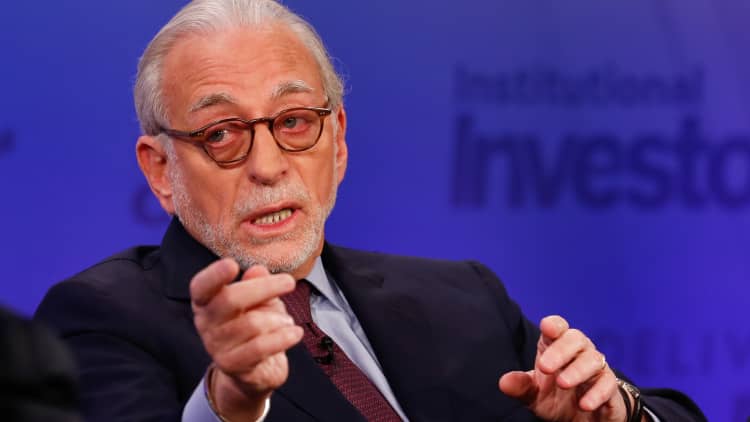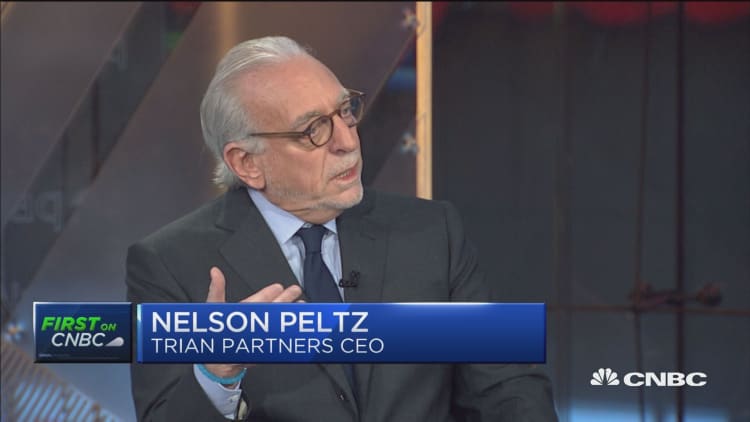
One board seat, one epic battle.
In the the culmination of the largest-ever proxy fight, Procter & Gamble will find out Tuesday if shareholders want to give Nelson Peltz a seat on the board of the owner of Bounty and Tide.
It's a fight that has cost millions and at times turned personal, pitting former colleagues against each other.
P&G, which has a market capitalization of about $235 billion, has enlisted the help of four banks: Goldman Sachs, Morgan Stanley, Centerview and Lazard, as well as its former chief executive, A.G. Lafley, to support its cause. One estimate says it has spent $60 million to that end.
The investor, meanwhile, has written a 94-page white paper and recruited P&G's former CFO, Clayton Daley.
Both have reached out to the company's large retail shareholder base by email, paper mail, Twitter and Facebook. P&G, which is using a "Vote Blue" slogan for the campaign, created a website in P&G's trademarked color. Trian has created its own website, "RevitalizePG.com," in blue a shade darker.
The public battle has been brewing since February, when Trian revealed a roughly $3.5 billion stake in the company. And in July, Trian nominated Peltz to P&G's board of directors. All three proxy advisories — Egan-Jones, Glass Lewis and Institutional Shareholder Services — are recommending putting Peltz on the board.

The vote comes a day after General Electric put Trian co-founder Ed Garden on its board — amid pressure from the fund.
Trian has criticized P&G for lagging in innovation and focusing too much on its core brands at the expense of launching and growing younger ones. It has critiqued the company's organizational structure, saying it is too complex and that it should consolidate from 10 operating units to three.
P&G offers as innovation its 2012 launch of Tide Pods, a still growing $1.5 billion brand. It claims it has already evaluated Peltz's proposed operational structure and believes it will lead to more costs and bureaucracy than the current setup. The company also defends the import of large brands like its Dawn dish washing business, arguing these they still resonate with consumers because they work.
"Each side has valid points," Nik Modi of RBC Capital Markets told CNBC. "The question we are all going to ask tomorrow, whether Peltz gets a board seat or not, is what is Procter worth?"
Modi and others have said that, if P&G wants to be worth more, it will have to innovate and grow its sales to offset the ground it has ceded to competitors that are stronger in digital and more on trend with consumers. The company that helped define brand marketing will also have to readjust to a new marketing age amid the rise of digital and social media.
P&G has said it's working on it.
The company sold its fragrance and color cosmetics business to Coty in 2016 so it could shift its focus away from trendier brands to its core strengths in products like detergent and toothpaste. After losing market share in China, it launched a more expensive diaper in the country to match demand. It has also simplified its organizational structure.
The decision for voters, according to Barclays analyst Lauren Lieberman: "Does Peltz change the dialogue in a way that moves things forward?"



